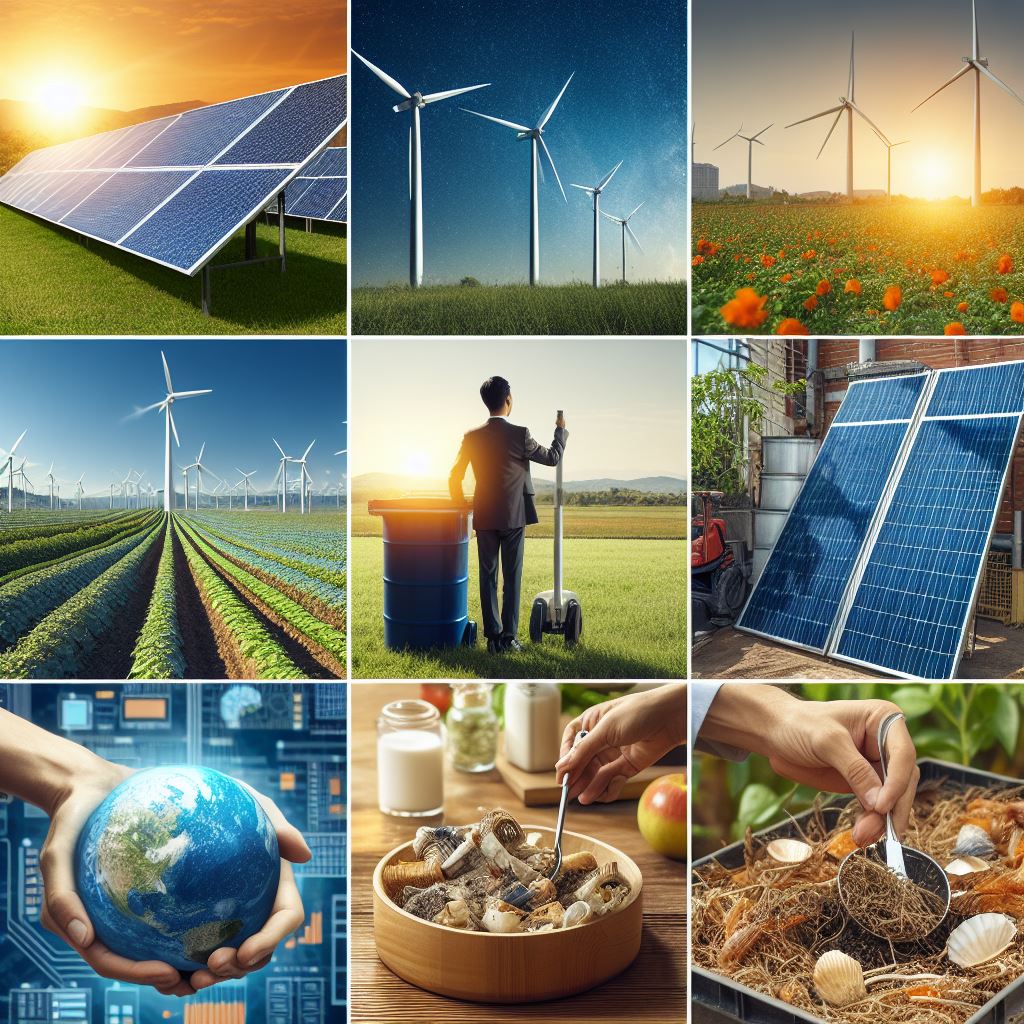The challenges posed by climate change and environmental degradation necessitate a global shift towards sustainable practices. Thankfully, the field of sustainable technology is brimming with innovative solutions that offer a glimmer of hope for a greener future. Let’s delve into some of these groundbreaking advancements and explore their potential to reshape our world.
Harnessing the Power of Renewables:
The transition from fossil fuels to renewable energy sources is crucial to combat climate change. Sustainable technology is spearheading this transition through advancements in:
- Solar energy: With increasing efficiency and affordability, solar panels are becoming a viable option for both residential and commercial use, generating clean electricity from the sun’s rays.
- Wind energy: Wind turbines are harnessing the power of wind to generate electricity on a large scale, with advancements in offshore wind farms further expanding their potential.
- Geothermal energy: Utilizing the Earth’s natural heat, geothermal power plants provide a reliable and clean source of energy, particularly in regions with geothermal resources.
Building a Sustainable Future with Materials Science:
Sustainable materials are revolutionizing various industries by offering environmentally friendly alternatives. These innovations include:
- Biodegradable materials: Replacing traditional plastics with biodegradable alternatives derived from plant-based sources can significantly reduce plastic pollution.
- Recycled materials: Utilizing recycled materials in construction, packaging, and other applications reduces reliance on virgin resources and conserves valuable natural resources.
- Sustainable building materials: Building materials like bamboo and recycled concrete offer eco-friendly alternatives for construction, minimizing the environmental impact of the built environment.
Minimizing Waste and Embracing the Circular Economy:
Sustainable technologies are playing a pivotal role in reducing waste generation and promoting the principles of the circular economy:
- Waste-to-energy: Technologies are being developed to convert various forms of waste into valuable resources, such as electricity or biofuels, minimizing waste sent to landfills.
- Composting: Encouraging composting of organic waste reduces greenhouse gas emissions associated with landfills and creates nutrient-rich compost for gardens and agriculture.
- Resource recovery: Innovative technologies are facilitating the recovery and reuse of materials from various waste streams, promoting circularity and conserving resources.
Challenges and Opportunities on the Road Ahead:
While these advancements are promising, implementing these sustainable solutions presents challenges:
- Cost and scalability: Some technologies are still in their early stages and can be costly to implement. Scaling them up to meet global needs requires collaboration and investment.
- Infrastructure development: Transitioning to renewable energy requires significant investments in infrastructure development, such as transmission lines and energy storage solutions.
- Policy and regulations: Supportive government policies and regulations are crucial to incentivize the adoption of sustainable technologies and create a level playing field.
Despite these challenges, the opportunities presented by sustainable technology are vast:
- Economic benefits: Investing in sustainable technologies can create new job opportunities, boost innovation, and stimulate economic growth.
- Improved health: Transitioning to clean energy and reducing pollution can lead to improved air quality and public health, benefitting communities around the world.
- A sustainable future: By embracing sustainable technologies, we can pave the way for a cleaner, healthier planet for future generations.
Conclusion:
Sustainable technology isn’t just a future promise; it’s a present reality offering innovative solutions to address pressing environmental challenges. By supporting the development and implementation of these technologies, we can collectively contribute to building a more sustainable and prosperous future for all. Remember, even small individual actions, coupled with large-scale technological advancements, can create a significant positive impact. Let’s continue to embrace and invest in these sustainable solutions, ensuring a brighter future for our planet.




